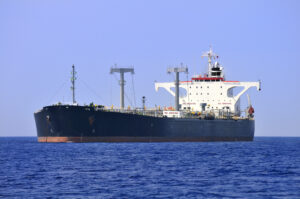Russian oil exports fell by 40 kb/d in December to 7.33 mb/d, while export revenues rose by $0.41 bn to $15.1 bn as product prices improved, the International Energy Agency (IEA) said in its January report.
Meanwhile, oil prices surged past $80/bbl in early January, propelled by tighter sanctions on Russian and Iranian oil and the North American cold snap.
The United States took sweeping action to fulfill the G7 commitment to reduce Russian revenues from energy, including blocking two major Russian oil producers. They have also imposed sanctions on an unprecedented number of oil-carrying vessels, many of which are alleged to be part of the “shadow fleet.”
The agency’s experts stressed that the new, more expansive U.S. sanctions against Russia’s oil sector may affect oil supply flows.
The U.S. government issued new sanctions intended to reduce revenues from the Russian oil sector.
Washington targeted two major oil producers and 183 vessels, largely oil tankers as well as oil tankers owned by Russia-based fleet operators, the US Department of Treasury reported earlier this month.
But exports on non-shadow tankers remain viable for Russian oil purchased below price caps.
At the same time, there is heightened speculation that the incoming US administration will take a tougher stance on Iran’s oil exports, IEA said, compounding the impact of US Treasury sanctions on Tehran.
The United States imposed additional sanctions against Iran in December targeting four entities and three vessels that it says are part of a “shadow fleet of vessels” transporting cargoes of Iranian petroleum and petrochemicals to foreign markets.
“The new sanctions on Iran’s shadow fleet now cover vessels that transported an average of over 500 kb/d of Iranian crude in 2024, nearly one-third of the country’s crude exports,” emphasised IEA.
Included in sanctions last month are Iran’s so-called “ghost fleet” of ships and associated firms that allegedly have been involved in the illicit transfer of Iranian oil. The sanctions target Liberia and Greece registered shipping companies as well as a Marshall Islands-registered company owning a Djibouti-flagged crude oil tanker.
The agency said in its report that while it is too early to fully quantify the potential impact from these new measures, some operators have reportedly already started to pull back from Iranian and Russian oil.
The sweeping moves, taken just over few days before President Joe Biden leaves office, come as Russian President Vladimir Putin says he is ready for potential talks with President-elect Donald Trump.
Russia says it is open to dialogue although critics say that in reality its proposals amount to little more than a Ukrainian surrender.
Despite previous scepticism about the effectiveness of such measures, it is widely expressed from many analysts that the next administration would maintain and enforce the sanctions.
Furthermore, the UK, EU and the US will likely hold off on sanctions relief and maintain the freeze on Russian assets to keep the pressure on Mr. Putin, according to New York-based advisory, shipping & commodity brokerage Poten & Partners.
The latest sanctions on Russian oil sector come just few days before Biden is due to step down, and puts Trump in something of an awkward position given his stated desire to end the Ukraine war on day one of his presidency.
The outgoing administration billed the new sanctions as the most significant to date against Moscow’s oil and liquefied natural gas sectors, the driver of Russia’s economy.



